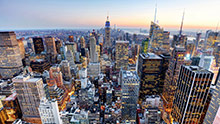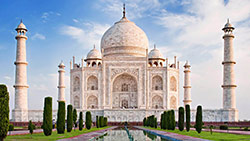- Global citiesAfricaAmericaAsiaEuropeOceania





- News
- Analysis
- Int. Corridors
- Mega Projects
- Statistics
- Global citiesAfricaAmericaAsiaEuropeOceania





- News
- Analysis
- Int. Corridors
- Mega Projects
- Statistics











Tokyo
Yen
125 m
Tokyo, Yokohama , Osaka, Nagoya
Japan is a country located in eastern Asia, consisting of the main island of Honshu as well as several smaller islands. Japan has been an influential force in the region for centuries, with a rich cultural history including its traditional customs, arts, martial arts, and cuisine that set it apart from other countries in Asia. In addition to its historical and cultural significance, Japan is also a modern and technologically advanced country, with a strong economy that has made it one of the largest and most important global players in industries such as manufacturing, services, and technology. This country is the fifth largest economy in the world and has a highly developed transportation network. Japan has a strong economy, with a strong emphasis on manufacturing and technology and Tokyo is the capital city of Japan and is one of the largest and most populated cities in the globe.
Japan’s history dates back thousands of years, with periods of imperial rule and feudalism shaping its culture and society. The country experienced rapid modernization in the late 19th and early 20th centuries, becoming a major global power. However, Japan’s involvement in World War II resulted in devastation and loss, leading to its surrender and subsequent rebuilding.
Today, Japan is renowned for its technological advancements and innovation. The country is a leader in the production of electronics, automobiles, robotics, and other high-tech industries. Japanese companies like Sony, Toyota, and Panasonic are household names worldwide. The emphasis on research and development has allowed Japan to stay at the forefront of technological progress.
Geographically, Japan is an archipelago consisting of four main islands: Honshu, Hokkaido, Kyushu, and Shikoku. The country is situated along the Pacific Ring of Fire, making it prone to earthquakes and tsunamis. Despite these natural challenges, Japan has implemented strict building codes and disaster preparedness measures to mitigate risks.
Japan boasts a robust economy with low inflation rates compared to other developed nations. The country’s industrial sector includes manufacturing, finance, tourism, and agriculture. Japan’s industry continues to evolve with a focus on sustainability and efficiency to maintain its competitive edge in the global market. In addition, Japan is a member of the G7, a group of major industrialized countries.
Japanese cities are known for their innovative design and resilience against environmental disasters like earthquakes. Tokyo serves as the capital city and one of the largest metropolitans in the world. Its compact urban fabric allows for efficient land use while incorporating green spaces for recreation. Other major cities like Osaka and Kyoto blend traditional architecture with modern amenities seamlessly.


Japan’s modern transport infrastructure is highly efficient and reliable. The country boasts an extensive network of high-speed railway systems like the Shinkansen that connect major cities quickly. In addition to trains, Japan has well-developed public transportation options such as buses and subways within urban areas for convenient commuting.


In conclusion, Japan’s holistic approach to development encompasses its rich history, technological prowess, unique geography challenges resilience against natural disasters like earthquakes tsunami robust economy low inflation rate improving industry well-designed cities modern transport infrastructure make it a standout nation on the global stage. With its blend of tradition innovation efficiency Japan continues to inspire awe admiration around the world.
